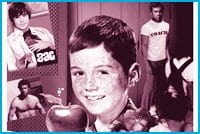The Ontario College of Teachers is creating a new course that will include training on queer issues. The college — which licenses and regulates teachers working in publicly funded schools in the province — is creating an optional professional development course for teachers about minority issues.
“It will better prepare you for teaching in Ontario’s diverse classrooms,” says Brian Jamieson, the college’s senior communications officer.
Jamieson says the course — to be called the Inclusive Classroom — will begin sometime next year. He says it will consist of 375 hours of study divided into three 125-hour segments. The course will be taught through all of Ontario’s faculties of education.
Jamieson says that so far the only group the college has approached for input on the course is Egale Canada, the country’s national queer lobby group. Jamieson says he doesn’t know which other groups or communities will be included in the course or contacted for input.
Helen Kennedy, Egale’s executive director, says she’s pleased with the course, although she would prefer it be mandatory.
“It’s a start for us,” she says. “It’s the first time we’ve ever been asked to participate, elective or otherwise.”
Kennedy says Egale will also continue to push for mandatory classes on queer issues for student teachers.
“Ultimately our aim is to have it included in the student teacher curriculum,” she says. “We’d like to see a mandatory credit course but we need to convince the ministry of education that these courses should be required.”
Right now faculties of education are required to offer courses on queer issues to their students, but the courses are optional.
Jamieson says the College of Teachers will create the course but it will be up to the various faculties of education to put the courses in place.
“Once we have established the standards and decided what the course is all about it’ll be up to the providers to meet those standards,” says Jamieson.
Kennedy says Egale will create a team of people to hash out what such a course should involve, including representatives from the Queer Parenting Network and the Toronto District School Board.
“We’ll come up with a template for what we think a course on LGBT issues should be like,” she says. “Then we’d want to have one or two people from our team involved in the actual writing of the course.”
Kennedy says that once the course is in place she is certain teachers will use it.
“I think a lot of teachers will want it and will take advantage of this course,” she says. “We’ve had teachers literally begging for information on how to deal with queer issues.”
Jamieson says the college decided to create the course after hearing from minority communities in the province.
“We had quite extensive consultations right across the province as to which courses we need to add to better address the diverse nature of Ontario’s classrooms,” he says.


 Why you can trust Xtra
Why you can trust Xtra


